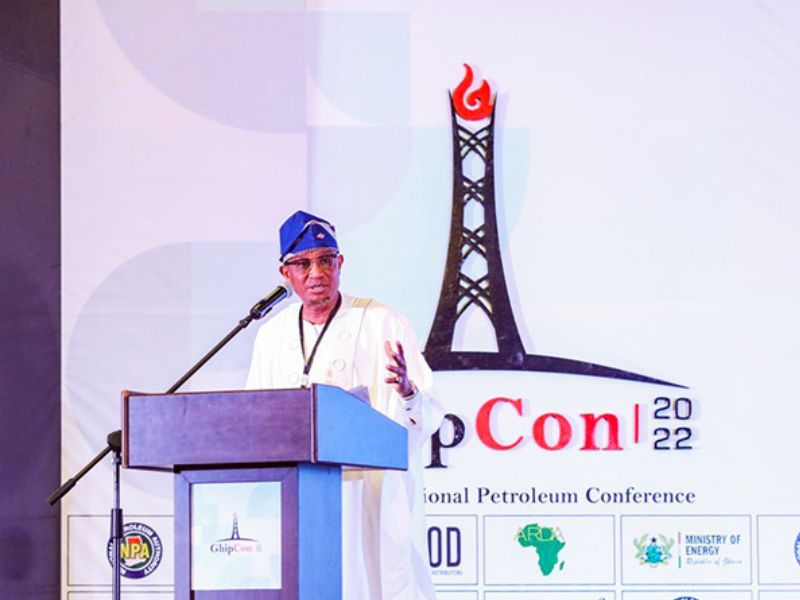
The Vice President, Dr Mahamadu Bawumia, has indicated that though Ghana wants to contribute to reducing emissions, fossil fuel will be part of the country’s energy mix in the short term, while steps are put in place to rope in renewable energy in the long term.
According to the Vice President, government is indeed committed to achieving the net zero carbon emissions by 2070, but steps must be taken to accelerate the production and utilisation of Ghana’s oil and gas reserves, hence the decision to use fossil in the short time.
“…What this means is that even though we want to contribute to reducing emissions, we are of the view that a balance must be struck and maintained in the context of our social, economic and environmental requirements.
“So fossil fuels, particularly natural gas, will continue to be part of Ghana’s energy mix in the short term, whilst strategies will be put in place to increase the share of renewable energy in the mix, from medium to long term,” the Vice President said.
Mr Bawumia was speaking at the 5th edition of the Ghana International Petroleum Conference (GhIPCon), held under the theme: “Energy Transition in the African Petroleum Downstream Context: Prospects, Challenges and the Way Forward.”

The program, which commenced yesterday and will end on Friday, September 30, 2022 has the overall objective of focusing on the readiness of Africa’s petroleum downstream on transitioning.
Ghana is set to transition from the use of fossil fuel to renewable energy by 2070.
Government has in response to this target set up the National Energy Transition Committee (NETC), which aim is to develop a national energy transition policy.
The NETC is expected to set up national objectives and targets for the energy transition and prescribe policies and measures for achieving these targets.
It will, in addition, assess the benefits, risks and costs of the global energy transition and determine risks mitigation measures, along with cross-cutting issues that must be addressed.
Despite these measures by government, the Vice President explained at yesterday’s conference that in the quest to transition, a balance must be stuck and maintained in the context of Ghana’s social, economic and environmental requirements.
“…We ought to be forward thinking in a rapidly changing world, not only in terms of energy transition, but in terms of all aspects of the energy-mix”, he said and questioned how industry players intend to insulate the energy sector from global economic shocks, especially, considering how the Russia-Ukraine war has affected the energy sector in the last few months.
He, therefore, called on industry players at the conference to use the opportunity to deliberate on how governments in the West Africa region can fully participate in the energy transition process, while remaining faithful to the needs and aspirations of their citizens.
He appealed to the NPA to ensure that it implements the recommendations that will be reached and not leave it on the shelves to gather dust.
The Chief Executive of the National Petroleum Authority (NPA), Mr Mustapha Hamid, on his part said that the Authority is committed to reducing the emissions from the energy products. This has culminated in the reduction of sulphur content in transport and industrial fuels from a maximum of 5000ppm to a maximum of 50ppm, as well as the implementation of the Cylinder Recirculation Model policy.
He, however, admitted that there will be pressure on government’s spending in the country’s quest to transition from fossil to renewable energy because government would still have to ensure that the diversification process meets global needs. He, therefore, called on all industry players to intensify their efforts in the transitioning process.
“The reality of fulfilling the energy transition commitment is that there will be further pressure on government spending to ensure that our diversification process meets global needs. It is, therefore, imperative that we intensify our efforts,” the NPA boss said.
The Minister for Energy, Mr Matthew Opoku Prempeh, who had a speech read on his behalf also said that Ghana remains committed both to an energy transition agenda and the development of its petroleum industry including the downstream sector and believes that the way forward is “to strike an important and fair balance between the two, without compromising our determination to maximize the benefits we need for our industrialization.”
Other industry players who spoke at the event were the Chief Executive, Africa Refiners & Distributors Association (ADRA), Mr Anibor Kragha, CEO, Chamber of Bulk Oil Distributors (CBOD) and others.









